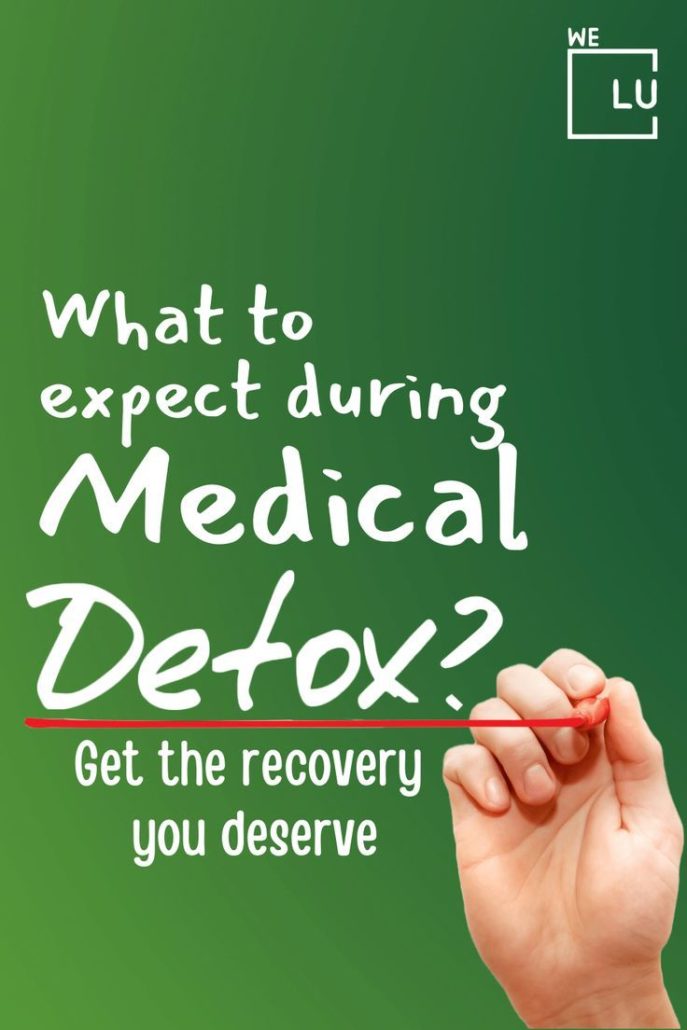What is Spironolactone?
Spironolactone is a potassium-sparing diuretic (water pill) that prevents your body from absorbing too much salt and keeps your potassium levels from getting too low. Spironolactone is a prescription drug that comes as an oral tablet and suspension. Spironolactone oral tablet is available as a brand-name drug and a generic drug. Brand name: Aldactone. It is in a class of medications called aldosterone receptor antagonists. It causes the kidneys to eliminate unneeded water and sodium from the body into the urine but reduces the loss of potassium from the body. Spironolactone and alcohol interactions can occur. Patients should avoid drinking alcohol while taking this medication.
What is Spironolactone Used for?
Spironolactone is used to treat certain patients with hyperaldosteronism (the body produces too much aldosterone, a naturally occurring hormone); low potassium levels; heart failure; and patients with edema (fluid retention) caused by various conditions, including liver or kidney disease. It is also used alone or with other medications to treat high blood pressure.
High blood pressure is a common condition and, when not treated, can cause damage to the brain, heart, blood vessels, kidneys, and other body parts. Damage to these organs may cause heart disease, heart attack, heart failure, stroke, kidney failure, loss of vision, and other problems.
In addition to taking medication, lifestyle changes will also help control your blood pressure. These changes include eating a diet low in fat and salt, maintaining a healthy weight, exercising at least 30 minutes most days, not smoking, and using alcohol in moderation.
Why it’s used? This drug reduces swelling from liver disease and nephrotic syndrome (a kidney problem). It’s also used to treat high blood pressure, heart failure, and hyperaldosteronism (excessive secretion of the hormone aldosterone). This drug works by blocking aldosterone activity. Aldosterone is a chemical made by the body that can cause water retention. This makes certain heart, kidney, and liver conditions worse.
Skip To:
- What is Spironolactone?
- What is Spironolactone Used for?
- Can You Drink Alcohol on Spironolactone?
- Spironolactone with Alcohol
- Spironolactone Alcohol Interaction
- Spironolactone Alcohol Side Effects
- Spironolactone Alcoholic Liver Disease
- How to Drink Alcohol Safely After Stopping Spironolactone?
- Alcoholism Treatment
Learn More:
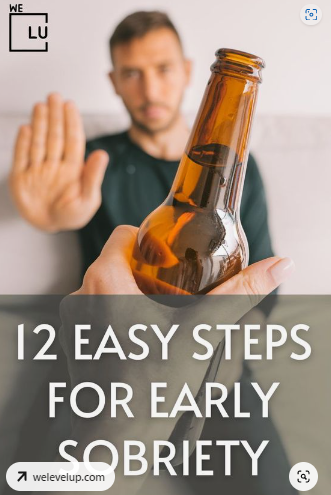
Can You Drink Alcohol on Spironolactone?
Although some doctors believe drinking a small amount of alcohol while on spironolactone is safe for most people. In some people, the combination of Spironolactone and alcohol can drastically lower your blood pressure. This can make you dizzy when you stand or sit up from lying down. Be extra careful with alcohol when you first start taking spironolactone until you know how it will affect you. Regular alcohol consumption can also raise your blood pressure. If you do choose to drink, use caution and drink moderately.
Spironolactone with Alcohol
Spironolactone has a relatively short half-life, meaning the time required to reach half of its original concentration in your body. On average, the half-life of spironolactone is approximately 1.4 hours. This means that a standard dose of spironolactone is “out of your system” within 24 hours of the time you took your medication.
However, certain metabolites or spironolactone can last for significantly longer in your body, with some requiring 15 hours or longer to reach half of their initial concentration. These metabolites can take three to four days to exit your body completely.
Because of this, waiting several days before drinking alcohol or increasing your alcohol consumption after stopping spironolactone is important. How long after taking spironolactone can you safely consume alcohol? If you’ve only recently stopped using spironolactone, it’s generally best to wait three to four days before drinking alcohol.

Get Your Life Back
Find Hope & Recovery. Get Safe Comfortable Detox, Addiction Rehab & Mental Health Dual Diagnosis High-Quality Care at the We Level Up Treatment Centers Network.
Hotline (877) 378-4154Spironolactone Alcohol Interaction
Spironolactone and ethanol may have additive effects in lowering your blood pressure. You may experience headaches, dizziness, lightheadedness, fainting, and changes in pulse or heart rate. These side effects are most likely seen at the beginning of treatment, following a dose increase, or when treatment is restarted after an interruption.
Tell your doctor if you develop these symptoms and they do not go away after a few days or become troublesome. Avoid driving or operating hazardous machinery until you know how the medications affect you and use caution when getting up from a sitting or lying position. It is important to tell your doctor about all other medications you use, including vitamins and herbs. Do not stop using any medications without first talking to your doctor.
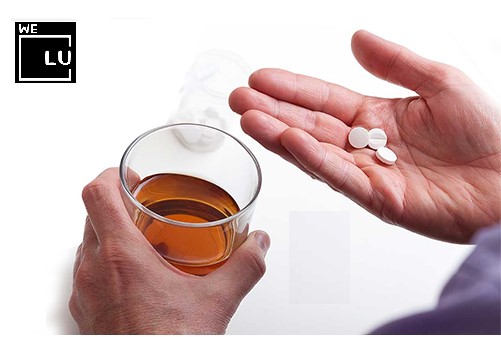
First-class Facilities & Amenities
World-class High-Quality Addiction & Mental Health Rehabilitation Treatment
Rehab Centers TourRenowned Addiction Centers. Serene Private Facilities. Inpatient rehab programs vary.
Addiction Helpline (877) 378-4154Proven recovery success experience, backed by a Team w/ History of:
15+
Years of Unified Experience
100s
5-Star Reviews Across Our Centers
10K
Recovery Success Stories Across Our Network
- Low Patient to Therapist Ratio
- Onsite Medical Detox Center
- Comprehensive Dual-Diagnosis Treatment
- Complimentary Family & Alumni Programs
- Coaching, Recovery & Personal Development Events
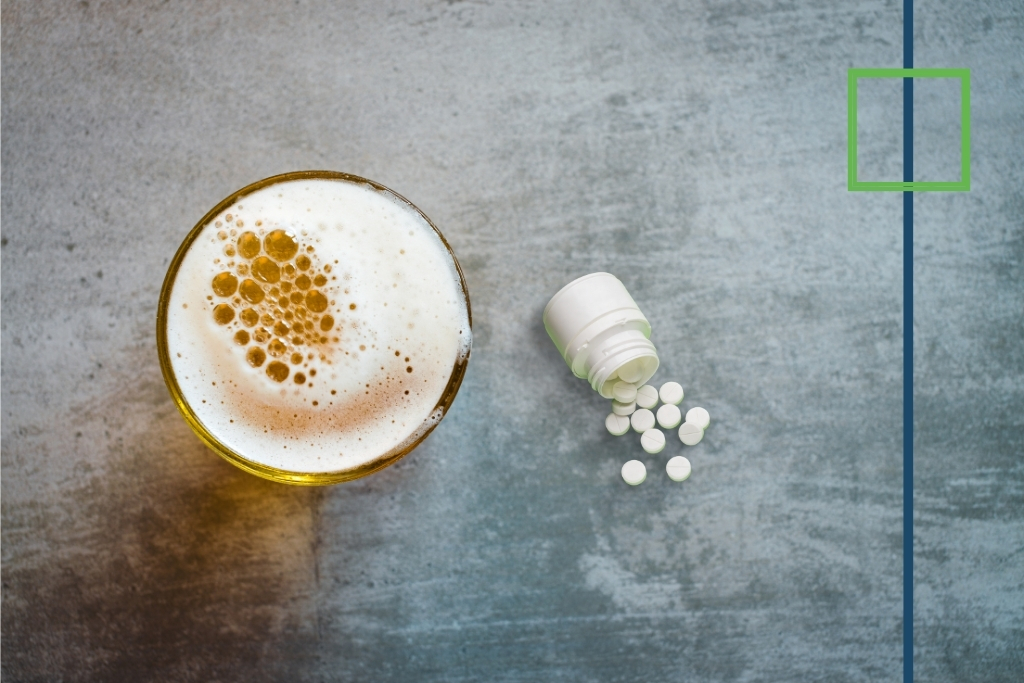
Spironolactone Alcohol Side Effects
Mixing spironolactone and alcohol may cause side effects to occur that are more severe than usual. Alcohol and spironolactone can cause blood pressure levels to become lower, for instance. Taking these together may lead to very low blood pressure levels (hypotension), which could result in lightheadedness, headaches, fainting, and changes in heart rate.
Like all prescription medications, spironolactone can potentially cause adverse effects.
Common side effects of spironolactone include:
- Diarrhea
- Dehydration
- Headaches
- Restlessness
- Nausea and vomiting
- Changes in motor control
- Stomach cramps and pain
- Breast pain and breast swelling
- Changes to your menstrual cycle
- Post-menopausal vaginal bleeding
- Changes in your body hair growth
- Drowsiness, fatigue, and confusion
Spironolactone Alcoholic Liver Disease
Spironolactone is an aldosterone receptor antagonist and potassium-sparing diuretic widely used in edema therapy, particularly in patients with cirrhosis, where hyperaldosteronism plays a significant role. Spironolactone has been linked to rare cases of clinically apparent drug-induced liver disease. Clinically apparent liver injury from spironolactone is rare, and only a few instances have been reported as isolated case reports. The liver injury typically arises after 4 to 8 weeks of therapy, and the pattern of serum enzyme elevations is usually hepatocellular or mixed. Immunoallergic features (rash, fever, eosinophilia) are rare, as is autoantibody formation. Recovery has occurred within 1 to 3 months of stopping, and all cases have been mild and self-limited.
What is alcoholic liver disease? Alcohol liver damage or alcohol-related liver disease (ARLD) is caused by heavy consumption of alcohol. The liver’s job is to break down alcohol. If you drink more than it can process, it can become badly damaged. Every time we drink alcohol, the liver has to filter it to break it down and remove it from the body. Unfortunately, some liver cells die during this process, so the liver needs a break from alcohol to regenerate and make new cells. Drinking too much alcohol over a long period means the liver doesn’t get a chance to recover. This can result in severe and permanent alcoholic liver damage.
World-class, Accredited, 5-Star Reviewed, Effective Addiction & Mental Health Programs. Complete Behavioral Health Inpatient Rehab, Detox plus Co-occuring Disorders Therapy.
CALL (877) 378-4154End the Addiction Pain. End the Emotional Rollercoaster. Get Your Life Back. Start Drug, Alcohol & Dual Diagnosis Mental Health Treatment Now. Get Free No-obligation Guidance by Substance Abuse Specialists Who Understand Addiction & Mental Health Recovery & Know How to Help.
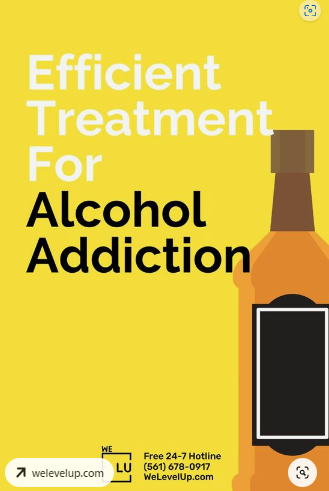
How to Drink Alcohol Safely After Stopping Spironolactone?
If you’re given the all-clear to start drinking after stopping spironolactone, it’s fine to get out and enjoy yourself. However, it’s best to take a few precautions to reduce your risk of experiencing any issues while drinking. Try to:
- Start with small quantities of alcohol. If you’ve been taking spironolactone for a long time and moderating your alcohol consumption during treatment, you may have a lower tolerance for alcohol than before.
To avoid becoming drunk too quickly, try starting with small quantities of alcohol. Stick to one or two drinks for your first night out with friends to assess your alcohol tolerance, even if you normally feel comfortable drinking more than this. - Take it slow and steady. Avoid drinking alcohol too quickly. To slow your alcohol consumption, try to make yourself have one non-alcohol drink, such as a glass of water, soda, or fruit juice, between each serving of alcohol.
- Stop drinking alcohol if you notice any issues. If you feel dizzy, lightheaded, or as if you’re going to faint, stop drinking alcohol right away. If you’re in a bar or club, switch to soda or another non-alcoholic drink until you feel more comfortable.
- If you have an alcohol use disorder, tell your healthcare provider. Make sure to let your healthcare provider know if you’re alcohol dependent before using spironolactone, as this may affect your ability to use this medication safely.
Experience Transformative Recovery at the We Level Up Treatment Center.
See our authentic success stories. Get inspired. Get the help you deserve.



Start a New Life
Begin with a free call to an addiction & behavioral health treatment advisor. Learn more about our dual-diagnosis programs. The We Level Up treatment center network delivers various recovery programs at each treatment facility. Call to learn more.
- Personalized Care
- Caring Accountable Staff
- World-class Amenities
- Licensed & Accredited
- Renowned w/ 5-Star Reviews
We’ll Call You
Alcoholism Treatment
First and foremost, if you think a loved one is abusing Spironolactone and alcohol, you should research the substances and their associated addiction to understand better what your loved one needs. Next, you must plan an intervention to provide your loved ones with options to battle the effects of Spironolactone and alcohol addiction in a safe and supportive environment. During this intervention, offer compassion and support instead of judgment. Lastly, show your support throughout the entire treatment process.
In addition, prolonged drug use can have severe physical and psychological effects on you, so it is essential to seek treatment as soon as possible. Inpatient drug rehab offers intensive care that can help you promptly get through the early stages of withdrawal.
Alcohol Detox
Spironolactone alcohol detox is the process of weaning someone off of a dependency on a substance. It allows members of rehab centers like We Level Up NJ to recover safely and comfortably. While an uncomfortable withdrawal from alcohol is unavoidable, it doesn’t have to be unbearable.
Medical detox is often considered the first stage of treatment. It will help you navigate the complicated Spironolactone and alcohol withdrawal but doesn’t address patterns of thought and behavior contributing to drug use. Various treatment approaches and settings can help provide the ongoing support necessary to maintain long-term sobriety after you complete the Spironolactone and alcohol detox.
Cravings are very common during Spironolactone and alcohol detox and can be challenging to overcome. This often leads to relapse. Constant medical care provided during inpatient treatment helps prevent relapse. Clinicians can give medication and medical expertise to lessen cravings and Spironolactone and alcohol withdrawal symptoms.
Inpatient Spironolactone and Alcohol Rehab
There isn’t one treatment approach or style that will suit everyone. Treatment should speak to the needs of the individual. Inpatient rehab and addiction treatment aren’t just about drug use. the goal is to help the patient stop using alcohol and other substances, but alcohol rehab should also focus on the whole person’s needs.
Addiction is a complex but treatable disease that affects brain function and behavior. When someone or their family is considering different treatment facilities, they should account for the complexity of addiction and the needs of the individual. The objective of attending an inpatient rehab center for addiction treatment is to stop using the drug and re-learn how to live a productive life without it.
Following a full medical detox, most people benefit from inpatient rehab. Inpatient drug rehab can last anywhere from 28 days to several months. Patients stay overnight in the rehab facility and participate in intensive treatment programs and therapy. Once someone completes rehab, their addiction treatment team will create an aftercare plan, which may include continuing therapy and participation in a 12-step program like Narcotics Anonymous.
Psychotherapy
Many rehab programs will also have early morning classes or programs. Group sessions occur during inpatient rehab, as do individual therapy sessions. Family therapy may be part of inpatient rehab when it’s feasible. Alternative forms of therapy may be introduced during inpatient rehab, like a holistic therapy program, yoga for addiction recovery, or an addiction treatment massage therapy.
Several different modalities of psychotherapy have been used in the treatment of mental health disorders along with addiction, including:
- Cognitive Behavioral Therapy (CBT) – is an effective treatment that involves changing both the patterns of negative thoughts and the behavioral routines which are affecting the daily life of the depressed person for various forms of depression.
- Dialectical Behavioral Therapy – is a comprehensive mental health and substance abuse treatment program whose ultimate goal is to aid patients in their efforts to build a life worth living. The main goal of DBT is to help a person develop what is referred to as a “clear mind.”
- Solution-focused therapy is an approach interested in solutions that can be quickly implemented with a simple first step leading to further positive consequences.
Dual Diagnosis Treatment
Drug abuse and mental health disorders often co-occur. In many cases, traumatic experiences can result in a mental health disorders and substance abuse. Dual-diagnosis rehabilitation treats both of these issues together. The best approach for the treatment of dual diagnosis is an integrated system. This strategy treats both the substance abuse problem and the mental disorder simultaneously. Regardless of which diagnosis (mental health or substance abuse problem) came first, long-term recovery will depend mainly on the treatment for both diseases done by the same team or provider.
Medication Assisted Treatments (MAT)
Medication-Assisted Treatments (MAT) for substance use and mental health disorders are commonly used in conjunction with one another. This includes the use of medications and other medical procedures. During your rehab, the staff from your treatment facility will help you identify what caused your addiction and teach you skills that will help you change your behavior patterns and challenge the negative thoughts that led to your addiction. Sometimes, the pressures and problems in your life lead you to rely on substances to help you forget about them momentarily.
Please, do not try to detox on your own. The detox process can be painful and difficult without medical assistance. However, getting through the detox process is crucial for continued treatment. We Level Up provide proper care with round-the-clock medical staff to assist your recovery through our opioid addiction treatment program medically. So, reclaim your life, and call us to speak with one of our treatment specialists. Our counselors know what you are going through and will answer any of your questions.
Alcohol Rehab Near Me
Spironolactone and alcohol addiction is a condition that can cause major health problems, such as an overdose. We Level Up NJ rehab treatment & detox center can provide you, or someone you love, the tools to recover from this with professional and safe treatment. Feel free to call us to speak with one of our counselors. We can inform you about this condition and clarify issues like Spironolactone and alcohol withdrawal symptoms. Our specialists know what you are going through. Please know that each call is private and confidential.
